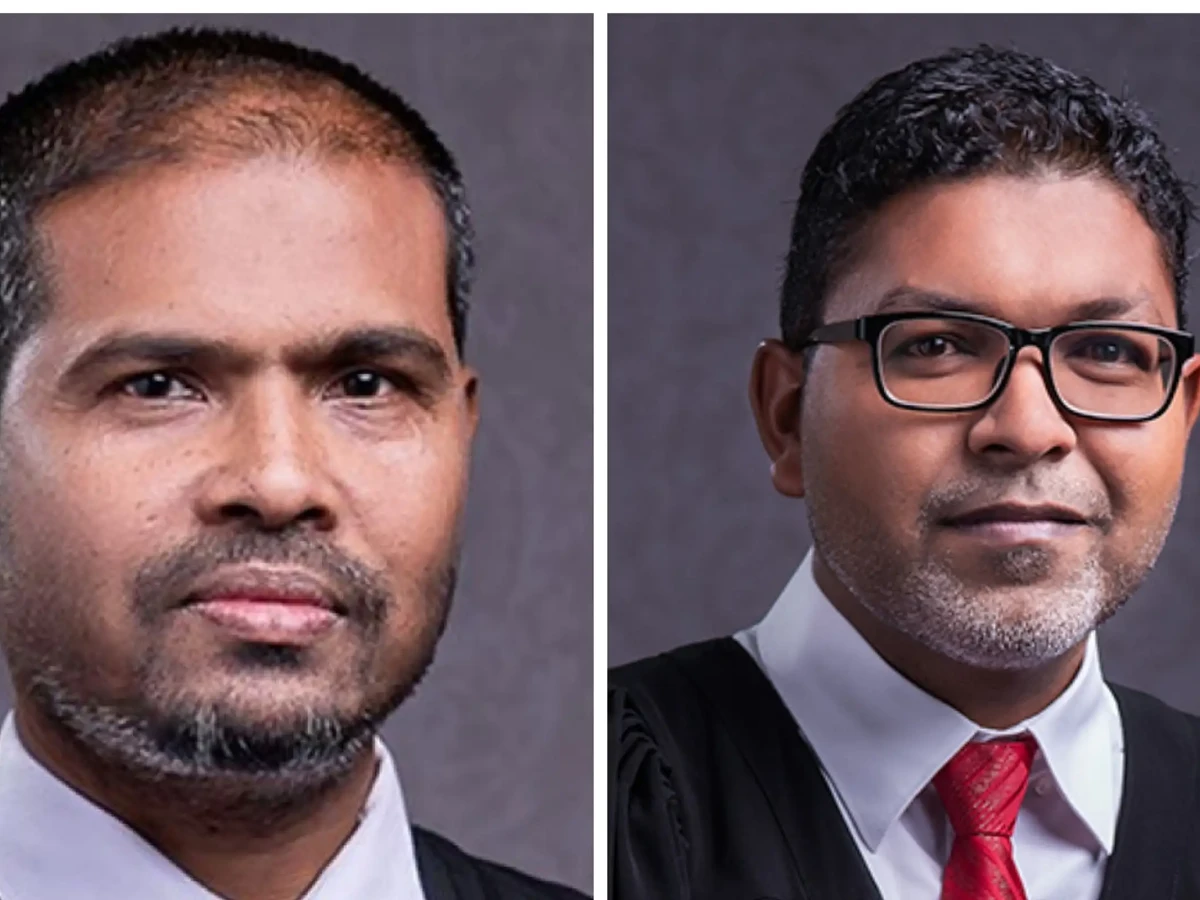
JSC recommends Saleem, Hameed to fill supreme Court vacancies
According to the JSC, 12 individuals applied for the vacant positions.
The Judicial Service Commission (JSC) on Tuesday decided to recommend High Court Justice Mohamed Saleem and former High Court Justice Abdulla Hameed for appointment to the Supreme Court.
The decision follows two vacancies on the seven-member bench of the Supreme Court after Parliament passed a resolution on 14 May to remove Justices Mahaz Ali Zahir and Azmiralda Zahir from the judiciary.
According to the JSC, 12 individuals applied for the vacant positions. Following interviews, the Commission stated that Saleem and Hameed received the highest scores among the candidates, although the scoring details were not made public.
The JSC approved the decision to forward the names of Saleem and Hameed to the President’s Office at a meeting held on Tuesday afternoon.
Under the Judiciary Act, the appointment process for Supreme Court judges requires the JSC to submit candidates to the President. The President then nominates one or more of those candidates to Parliament. If approved by Parliament, the President must finalise the appointment within seven days.
The Act also allows the President to request candidates from the JSC if he wishes to fill a vacancy on the bench.
The current vacancies followed the dismissal of Justices Azmiralda Zahir and Mahaz Ali Zahir, after the Parliament, with a majority held by the ruling People’s National Congress (PNC), voted for their removal. The decision was based on findings by the JSC, which concluded that the judges had committed misconduct.
However, Parliament’s legal counsel Fathimath Filza stated that the JSC had initiated the disciplinary proceedings without following required legal procedures.
The dismissal came after the suspension of three judges—Azmiralda, Mahaz, and former Supreme Court Justice Husnu Suood—in February. Their suspension occurred ahead of a scheduled hearing on the constitutionality of recent amendments that could lead to the expulsion of parliamentarians based on party affiliation. The case has since been stalled.
Suood later resigned, citing executive interference in the judiciary. The government has denied the allegations. Suood had been appointed to the Supreme Court by then Chief Justice of the High Court in April prior to his resignation.




